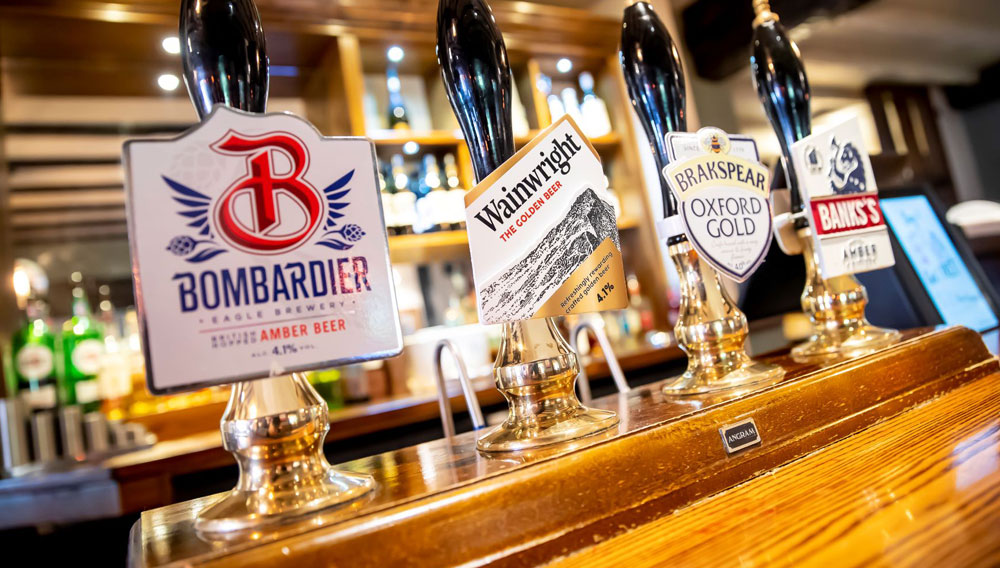Carlsberg and Marston’s set up UK brewing venture
United Kingdom | Carlsberg and British brewer Marston’s have announced a deal on 22 May 2020 to jointly own seven breweries, prompting comment that this is a fire sale by another name.
Marston’s from Burton is effectively taking a step back from its brewing heritage as it will only have a 40 percent stake in the venture.
The deal, creating the Carlsberg Marston’s Brewing Company, values Marston’s brewing business at up to GBP 580 million (USD 716 million) and its Danish partner’s British division at GBP 200 million (USD 247 million).
On top of a 40 percent stake, Marston’s will receive up to GBP 273 million (USD 337 million) in cash, while Carlsberg takes a 60 percent stake and operational control. Carlsberg UK Managing Director, Tomasz Blawat, will be appointed CEO of the new group.
Although the deal does not include Marston’s estate of 1,400 pubs, the agreement will still allow Carlsberg to sell its beers through them. For Carlsberg the benefit is clear. The competition for taps can only increase, even after the end of the lockdown, as potentially thousands of pubs will not make it through the pandemic. Having Marston’s pubs tied into a supply deal will keep Carlsberg’s beers flowing.
Is history repeating itself?
The deal involves Marston’s six breweries and distribution depots. The “pubs and rooms” arm of Marston’s was valued at over GBP 2 billion in 2019, according to Marston’s annual report. Marston’s employs a total of 14,000 people.
Before the covid-19 pandemic, the transaction would have been interpreted as Marston’s joining the ranks of other UK brewers, who decided to be shot of their brewing businesses because the on-premise is far more profitable than beer production.
In its 2019 financial year, ended September 2019, Marston’s reported an underlying operating profit of GBP 173 million for its hospitality business, while brewing’s operating profit was only GBP 32.6 million (USD 40 million).
Marston’s debt pile
However, Marston’s is debt-stricken. It owes GBP 1.4 billion (USD 1.7 billion) to creditors, putting its debt at 6.3 times its EBITDA in 2019. Its leverage could shoot to nearly 16 times EBITDA this year, if its profit tumbles to under GBP 90 million, according to estimates.
This suggests that Marston’s was forced to sell its brewing arm to service its debt. Its need for cash is glaringly obvious. Before the sale, Marston’s share price was only GBP 0.32, down from GBP 1.00 in February and up from GBP 0.24 in March, when the government shut all pubs.
Luckily, a week before the sale, Marston’s managed to secure GBP 70 million in extra credit from banks, probably on the prospect of an imminent tie-up with Carlsberg.
The two partners have not let on yet what they will do with all their breweries. Carlsberg UK will put its Northampton brewery, London Fields brewery, and national distribution centre into the joint venture, while Marston’s will contribute its six national and regional breweries: Marston’s, Banks’s, Wychwood, Jennings, Ringwood and Eagle as well as 11 distribution depots. Marston’s acquired the Eagle brewery in Bedford from brewer Charles Wells in 2017.
The Society of Independent Brewers (SIBA), the trade body representing small breweries, has warned the deal could make it harder for independent beer firms to get their beers into pubs.

